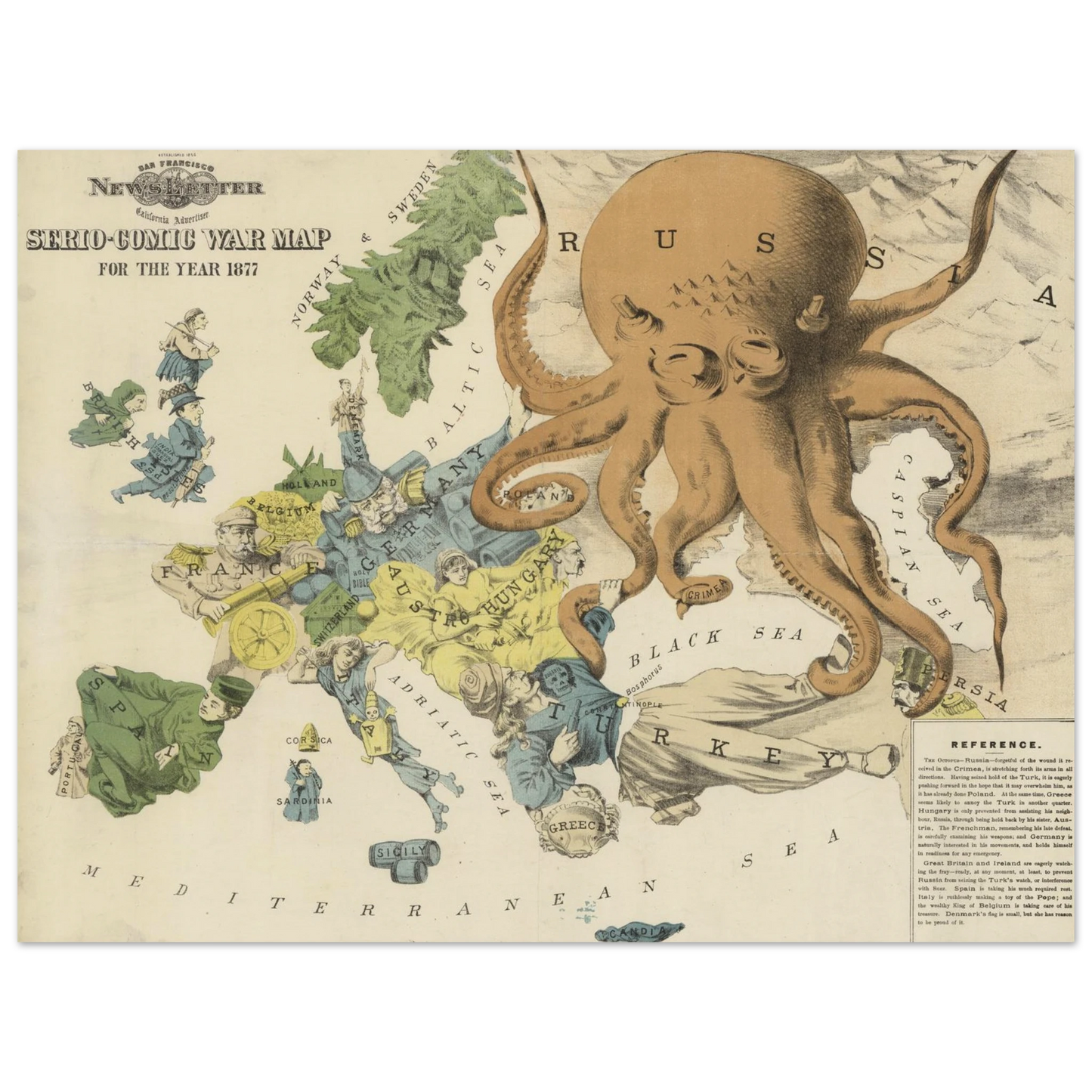This is the famous "Serio-Comic War Map for the Year 1877", created by Fred W. Rose, a British illustrator known for satirical and politically charged maps. Here's a breakdown of what you're seeing and its significance:
📌 Context
• Published in 1877, amid the Russo-Turkish War (1877–1878).
• Appeared in the San Francisco News Letter and California Advertiser.
• This is a satirical "octopus map", a genre popular in 19th-century Europe, blending caricature, politics, and cartography.
🐙 Russia as an Octopus
• Russia is the main character, depicted as a menacing octopus with its tentacles stretching into neighboring territories.
• Each tentacle symbolizes Russian imperial expansionism, particularly:
1. Crimea (annexed earlier in 1783),
2. Poland (partitioned and dominated by Russia),
3. and ambitions in the Balkans, Turkey, and Central Asia.
🗺️ Other Countries as Characters
Each nation is illustrated with symbolic figures:
• Turkey: A man fending off the Russian tentacle, showing Ottoman resistance in the ongoing war.
• Britain: A lion holding back its claws, suggesting a watchful and restrained stance.
• France: A figure seated on a cannonball, licking wounds from the Franco-Prussian War (1870–71).
• Germany: Portrayed with a spiked helmet (Pickelhaube), symbolizing its new military might post-unification.
• Austria-Hungary: Caught between Russian expansion and Balkan unrest.
• Italy and Greece: More passive, but drawn into the regional struggle.
• Spain and Portugal: Shown as sleepy or passive, reflecting their reduced influence.
📖 Bottom Right Reference Box
The box offers a narrative key, mocking the geopolitical landscape:
• It describes the Ottoman Empire's struggle, the threat Russia poses, and how other European powers are either alarmed, amused, or indifferent.
• The tone is humorous but biting, critiquing the hypocrisy and inertia of Europe in the face of Russian aggression.
🧠 Why It Matters
• This is an early example of geopolitical propaganda in map form.
• It visualizes the "Eastern Question"—how Europe would handle the decline of the Ottoman Empire and the ambitions of Russia.
• It also shaped the political imagination of the time, influencing public opinion and diplomatic perspectives.
Master's Edition archival paper, in off-white and uncoated, offers museum-quality for art enthusiasts seeking a luxurious way to enjoy world-class artworks:





